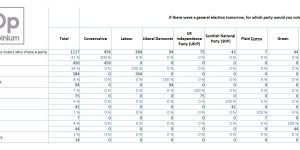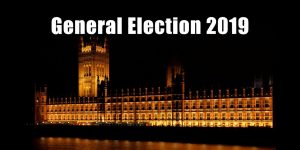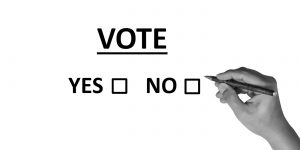Green Manifesto 2010 The Economy: Making it fair, making it work
The Green Party has plans to put the country back to satisfying and meaningful work
What we’ve seen over the past year is an economy in turmoil, leaking jobs and eating into pensions and savings. It’s so obvious that business as usual doesn’t work. We have to build a sustainable economy and society, otherwise there’s no future for anyone. Cutting investment now could lead to a double-dip recession, while the Green New Deal promises job security and economic stability.
The financial system of Britain and the world has grown out of all proportion to the real economy it is supposed to serve. By building on easy credit and financial speculation, it has lost touch with its physical underpinnings. Casino capitalism has become more important than making things and providing services. Houses have become speculative investments instead of somewhere to live.
Part of being sustainable is being more equal. An unsustainable, polluting economy affects us all, but it’s worse for the poor than the rich – the poor live where the air and water is most polluted, the environment least healthy.
We have one planet, and the best way to take care of it is to share its riches more fairly. No one must be so poor that they don’t have a stake in the eventual success of our efforts. We need policies for both sustainability and fairness – one doesn’t work without the other.That is why we argue for the same carbon quota for all, better pensions and free insulation – because they are fair, and good for both people and planet. We must use resources wisely and divide them up fairly.
Inequality in British society begins at birth, or even before, with low birth-weight and infant and child mortality significantly higher among economically disadvantaged groups. Around one in five children continue to live in low-income households. Children from these groups are less likely to complete GCSEs and A levels, and to attend universities.
Inequality is bad for all of us
New evidence, published by the Equality Trust (www.equalitytrust.org.uk), has shown that inequality is associated with many social ills, and equality with success. The points below are not just the sentimental prejudices of left-leaning politicians, they are facts based on scientific evidence.
• People trust each other more in more equal countries.
• More students drop out of high school in the more unequal US states.
• Children in the more equal US states score better in maths and reading.
• More equal countries have fewer people in prison – the US imprisons people at 14 times the rate of Japan.
• If you had poor parents, you are more likely to become rich in equal societies like Norway, and much less likely in the unequal US. And social mobility has declined in Britain in recent years.
• Unequal societies are more violent, with more homicide.
• Fewer teenagers become pregnant in more equal societies.
• Child well-being, as measured by the UNICEF Index, is best in more equal countries. Among rich countries it is worst in the UK.
• More equal countries recycle more of their waste.
• It’s not just the poor people in more equal countries that benefit from greater equality; rich people in more equal societies do better than rich people in less equal societies. And inequality also makes you ill; for more on health and inequality see the box on page 23.
Minority ethnic groups, lone parents, and people without formal qualifications have an unemployment rate of about double that for the total working-age population.The richest 1 per cent of households own more than 20 per cent of Britain’s wealth.The gross inequalities continue throughout life, with around 25 per cent of pensioners living in poverty, and significant disparities in life expectancy, particularly among men, associated with income. And inequality has risen in recent years, most steeply under Mrs Thatcher’s Conservatives since 1979, before declining a little in the early years of New Labour, only to rise again in recent years.
Inequality is not just wrong in itself. It makes us ill, causes us to die earlier, raises crime levels, depresses educational achievement, and creates stress and mental illness. New research has shown that more equal societies do better, and that equality – rather than simple average wealth or even lack of poverty – is the main route to a better society for everyone, rich and poor.
Underpinning all this is green economics, which is the only realistic economics. Greens understand that we need a one-planet economy that uses no more than the resources it gives us, not the fantasy multi-planet economy of the other political parties that will one day hit the buffers with a catastrophic crash.The very way we measure economic ‘success’ today shows the bankruptcy of business as usual. ‘Gross Domestic Product’ measures all the economic activity in Britain – even the money spent on picking up the pieces of our unfair and unsustainable society. Prisons and pollution are as ‘productive’ as schools and sanitation in the world of conventional economics.
We want to improve the welfare of people and the health of the planet rather than the size of the economy. Because size matters: if the economy gets too big it will grow beyond its ecological limits. Now we are up against a very challenging limit: the capacity of the atmosphere and the Earth to absorb our greenhouse gas emissions without overheating. Only the Green Party is willing to face up properly to these limits, and to say that limitless economic growth without thinking about the consequences is a dangerous and careless fantasy.
There is much work to be done to create a secure and stable economy. The transition to a sustainable, fair economy will create hundreds of thousands of jobs in manufacturing, design, building and engineering. And there is much work that is already being done but not yet recognised, like work in the home. Carers should be rewarded for the work they do. Job-sharing, part-time work, and time off for study or recharging should not be the poverty trap they are under the current benefits system.
In sum, we will create a fair and sustainable economy through redistributing income and assets, reclaiming the tools of economic management, and freeing the diverse talents of our citizens.
Green Manifesto 2010
Green Manifesto 2010 : Introduction
Green Manifesto 2010 : The Economy: Making it fair, making it work
Green Manifesto 2010 : Managing The Economy
Green Manifesto 2010 : Work And Jobs
Green Manifesto 2010 : Welfare
Green Manifesto 2010 : Taxation
Green Manifesto 2010 : Taxes to Protect The Enviroment
Green Manifesto 2010 : Local Living
Green Manifesto 2010 : Local Services
Green Manifesto 2010 : Housing
Green Manifesto 2010 : Education
Green Manifesto 2010 : Small Business
Green Manifesto 2010 : Citizens and Government
Green Manifesto 2010 : Policies For Citizenship
Green Manifesto 2010 : Government: It’s Ours
Green Manifesto 2010 : Climate Change
Green Manifesto 2010 : Transport
Green Manifesto 2010 : Farming, Food And Animal Protection
Green Manifesto 2010 : International Development, Peace and Security
Green Manifesto 2010 : Foreign Policy and Defence
Green Manifesto 2010 : Terrorism and the causes of terrorism
Green Manifesto 2010 : A positive role in Europe
Green Manifesto 2010 : Immigration
Green Manifesto 2010 : Trade, Aid and Debt
Copyright ©, The Green Party, 1a Waterlow Road, London N19 5NJ. All rights reserved. Any rights not expressly granted herein are reserved.












